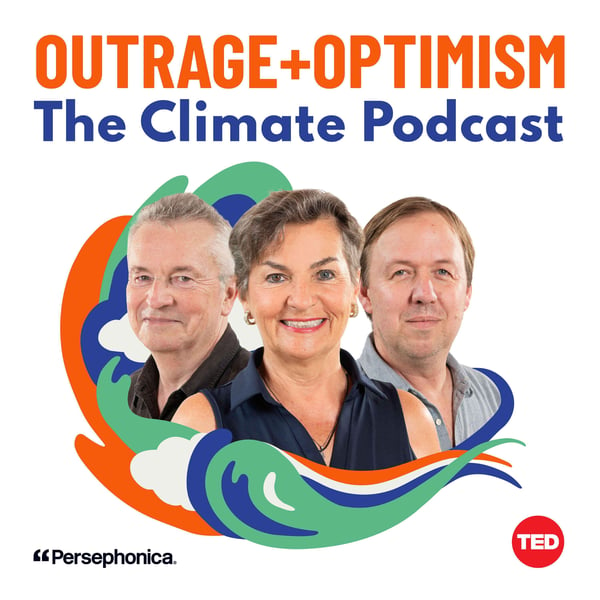250. Why Collective Trauma Is Keeping Us Stuck On Climate
Outrage + Optimism
Persephonica
4.7 • 1K Ratings
🗓️ 13 June 2024
⏱️ 42 minutes
🧾️ Download transcript
Summary
This week, we go deep into trauma with Thomas Hübl, who developed the Collective Trauma Integration Process for working with individual, ancestral, and collective trauma. With the help of Thomas, hear our hosts unpack why, and how, we have to keep working on the solutions even as we are still experiencing the trauma of the climate crisis.
Thomas Hübl, is a renowned teacher, author, and international facilitator who works within the complexity of systems and cultural change by integrating the core insights of the great wisdom traditions and mysticism with the discoveries of science.
NOTES AND RESOURCES
GUEST
Thomas Hübl, Teacher, Author, and International Facilitator
Website | Facebook | Instagram | LinkedIn | Twitter | YouTube | attuned
Please fill out our 2024 Listener Feedback Survey!
Vote for Outrage + Optimism in the British Podcast Awards Listeners’ Choice Category!
Learn more about the Paris Agreement.
It’s official, we’re a TED Audio Collective Podcast - Proof!
Check out more podcasts from The TED Audio Collective
Please follow us on social media!
Transcript
Click on a timestamp to play from that location
| 0:00.0 | Hello and welcome to this special episode of Outrage and Optimism. |
| 0:38.7 | This week we bring you a fascinating conversation that Tom Paul and I had with Thomas Hubel a few months ago. He is the author of the book, Healing Collective Trauma, a process for integrating our intergenerational and cultural wounds and the book Atuned |
| 0:47.3 | practicing interdependence to heal our trauma and our world. |
| 0:53.8 | Thomas is a teacher, author, and international facilitator. |
| 0:58.3 | And since 2004, he has taught and facilitated programs on trauma healing with more than 100,000 people |
| 1:09.4 | worldwide, including courses online. We invited Thomas onto the podcast to help us |
| 1:18.0 | unpack the way that trauma is spoken about and experienced by those working and thinking about the |
| 1:29.1 | climate crisis. But let me put this conversation into a broader context. |
| 1:37.0 | This conversation has no intent to deny that we are witnessing so many horrendous killings in the Middle East, in the Ukraine, in |
| 1:49.2 | Myanmar and elsewhere, and that these are deeply traumatic for those who live them directly and for many others. |
| 1:59.5 | This conversation is also not intended to deny that there are not only political and war situations |
| 2:09.4 | that are traumatic, but situations of unequal power and abuse of authority or even superior physical strength |
| 2:19.6 | that can lead to traumatic experiences. |
| 2:23.5 | So we do not mean to deny any of this. |
| 2:26.8 | And I personally have been already very open |
| 2:31.2 | about the fact that I have been through my share of experiences |
| 2:36.4 | that I perceived and experienced as traumatic when they happened, but that I am grateful to have been able to work |
| 2:47.4 | them through to the point where I remember them for sure but they no longer control my life. |
| 2:56.0 | But fast forward today here where we are. |
| 3:02.0 | I question what happens when the word trauma is used to refer to such |
| 3:10.9 | a broad array of human experiences that it tragically ends up losing its meaning? |
| 3:18.0 | Or does each individual decide on their own, |
... |
Please login to see the full transcript.
Disclaimer: The podcast and artwork embedded on this page are from Persephonica, and are the property of its owner and not affiliated with or endorsed by Tapesearch.
Generated transcripts are the property of Persephonica and are distributed freely under the Fair Use doctrine. Transcripts generated by Tapesearch are not guaranteed to be accurate.
Copyright © Tapesearch 2025.

